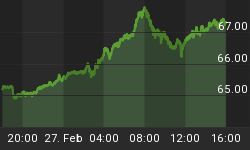US regulator the CFTC is anxious about the London gold fix. But what is the fix, and why...?
So is the London gold fix a fix? US derivatives-market regulators think it might be.
The CFTC is no doubt absolutely within its rights to question the use of certain prices as reference points (aka "marks") in US transactions. Joining the International Roundtable on Financial Benchmarks three weeks ago, its commissioner Bart Chilton said he also thought many other markets might deserve attention, too. But quite what a Washington commission overseeing the US futures markets might achieve - or hope to - as regards the London Fixings as a process, however, we can't imagine.
What is the London gold fix, and why does it exist? The fixing exists because, in the physical bullion market, there isn't any single price at any one time. Instead, all the different bullion banks and dealers quote their own prices direct to their clients. So the deals they strike are unique, with no centralized "clearing house" or "recognized exchange" reporting those deals as some kind of official price.
This is very different to a formal stock market or derivatives exchange. It makes valuing gold (in central bank vaults, say, or jewelry stockpiles) difficult. It also means that less active traders - such as gold miners, or industrial users - can't be confident they got "true" market price.
Hence the fix, and hence it's name. The fixing is essentially a snapshot of where the market stands for gold at 10:30am and 3pm (and for silver at midday) in London, heart of the world's physical bullion trade.
To take that snapshot, the biggest bullion banks look at their outstanding client orders, net off the buyers and sellers, and then get together to agree a price which clears what remains. So make no mistake - the fix is NOT a notional price.
Real supply and demand from real sellers and buyers creates the fix, and real business is done at that price (lots of it, too). That makes the fixing very different from the interbank Libor lending rate.
Libor, as you'll recall, is merely reported by the big banks. It doesn't necessarily match interest rates which anyone has been charged or paid. Which clearly opens the door to fraud, manipulation and - four or five years after regulators catch onto the scandal - big fines for offenders.
The London bullion fixes, in contrast, offer genuine price discovery. No, it isn't formally regulated by government (oh horror!). Yes, the fix is done behind closed doors (gasp!). But the banks' clients can enter orders to buy (or sell) at the Fix if it is below (or above) a certain level, and they can be updated throughout the process, too. It also follows and then leads the "spot price" quoted in live wholesale trading. But that single "spot price" doesn't exist, remember. The fix exists to fill that gap. And running since at least 1919 (and probably before, history fans) it has for almost a century acted as the global benchmark where none existed before.
Buy wholesale gold for Hong Kong delivery, and you'll be quoted the London price plus (or minus) a premium for delivery. Ask a central bank the value of its reserves or a stockist the value of its holdings, and they'll refer to the PM gold fix in their answer. Sell a gold mining company a long-term forward contract so they can hedge their exposure to prices today or raise capital to finance tomorrow's drilling, and the PM London gold fix will be your obvious reference.
You want another? How might this more-perfect benchmark be achieved exactly? No doubt communism is a long way from Bart Chilton's intentions. But judging from the CFTC commissioner's comments to date, the concern seems to be that a "government, quasi-government or appropriate not-for-profit entity should oversee" how prices are reached.
Soviet Russia tried that for a while. Didn't end well.















